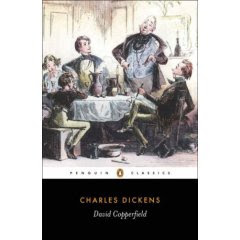David Copperfield is probably the book that is the most autobiographical of Charles Dickens novels, borrowing many sections from his life. Charles Dickens (1812-1870) lived in poverty during his childhood, being one of 8 children. He had little formal education, and yet grew out of his circumstances to become one of the most famous writers of all times. Many of his novels are prescribed reading in English literature courses in schools and colleges. Most of his books are based on human emotions, and contain a fair amount of poverty, human emotions, and so on. They present a vivid picture of human society.
The novel was published in 1850, and like his other novels, appeared in serial form in monthly installments. Dickens also reckoned this book to be his favorite novel. The novel was written in the first person, with David Copperfield being the narrator of the novel. The book has one clear message: The disciplining of the life (emotional and moral) of the hero, presenting a number of characters who are either disciplined, and others who are not disciplined. The book portrays the various characters in terms of the discipline in their life, including Agnes Wickfield, Mr. Peggotty, Uriah Heep, James Steerforth, Betsy Trotwood, Dora Spenlow, etc. Many of these characters have become very famous.
The book is about the life of David Copperfield, who loses his father six months before he his born, and he gets a new stepfather (Mr Edward Murdstone) when David is around 7 years. David cannot stand him or his sister, Jane and gets sent to a boarding school soon after biting his stepfather. When David returns home in a break, he finds that his mother is going to have a baby. However, when his mother and her baby die, David has to return to the home, and gets sent to a factory in London, where David has a doleful and poor experience. Soon, the factory owner goes bankrupt, and David manages to make his way to Dover to be with his aunt, and finally free of his stepfather.
He comes across many more character as he moves to adulthood, some of them good, kind and caring; others were selfish. Eventually, they get some sort of desserts for their acts. David himself finally finds happiness with his second wife, Agnes.
Year in Review 2017
7 years ago
No comments:
Post a Comment